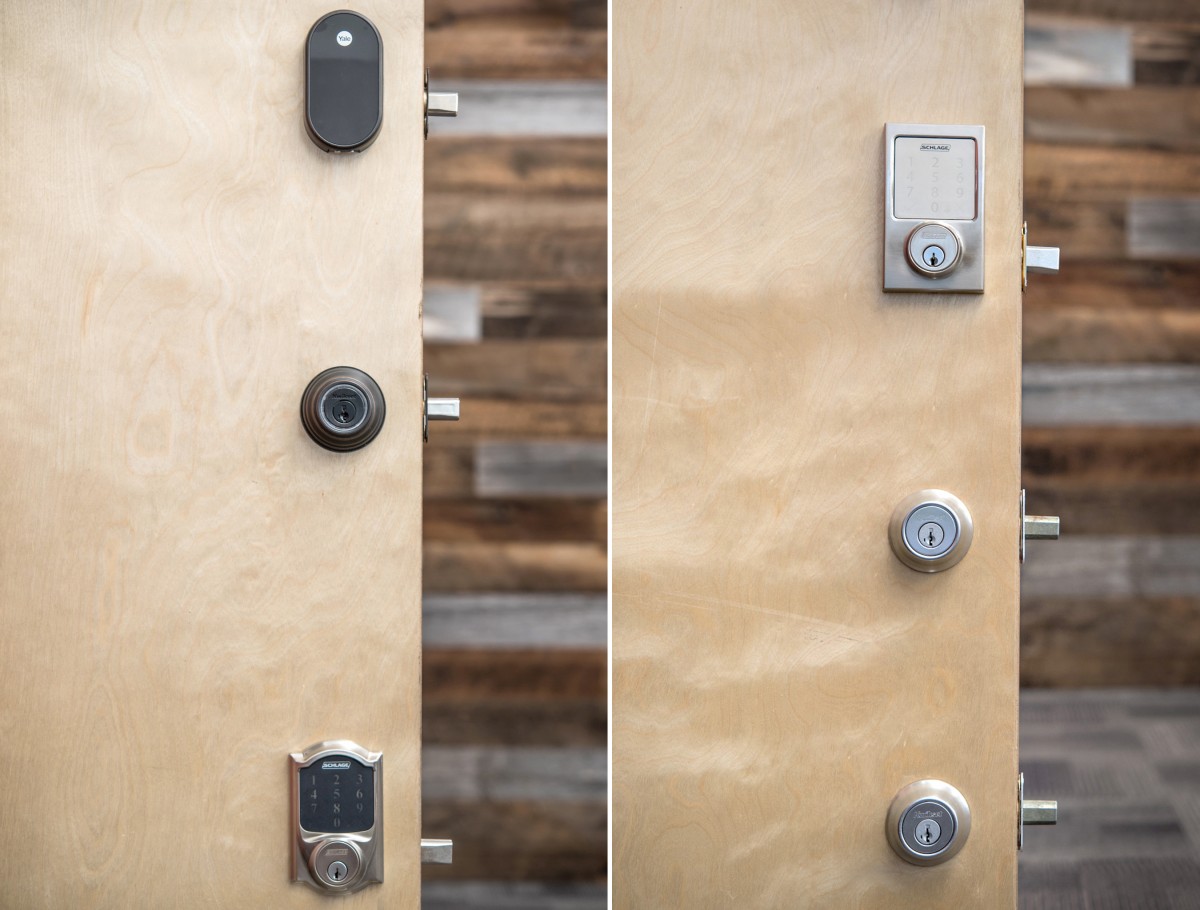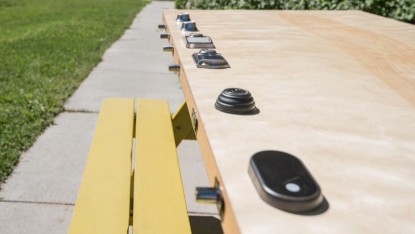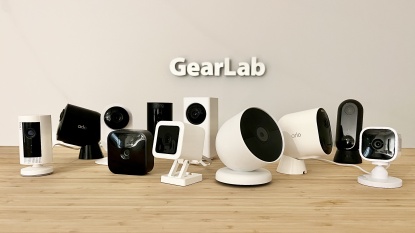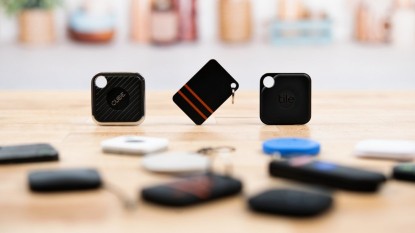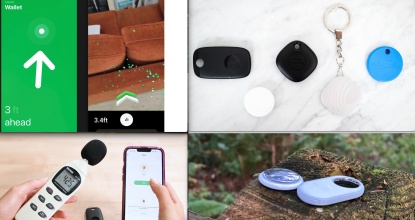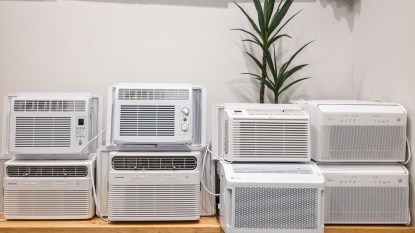Smart lock technology is currently lagging behind that of many of the other smart home devices available today. This means the question isn't which one you should get, but rather if you really would have use for one. In this article we'll go through the pros and cons of using smart locks in a multitude of different situations, so you can decide if it's worth buying one for your home. Then we'll give you some background information about smart locks, how they function, and things to be aware of.
Situations That Don't Warrant a Smart Lock
Based on our experience testing the best smart locks on the market, many people are spending good money on smart locks when a relatively inexpensive keypad lock would do the trick, and probably do it better.
Leaving the Key at Home
We've seen this one a lot. Runners or cyclists tend to be drawn to the idea of being able to leave the key at home while they're getting a workout in. There are two problems with this. First, many smart locks require that you use your phone as a digital key, so if you can schlep your phone on a run adding a single key probably won't make much difference. But what about keypad smart locks? Yes, a keypad smart lock would allow you to leave both your phone and your key behind whilst you go for a run, but a 'dumb' keypad lock allows the same luxury and likely costs less than 1/5th the price.
Making Sure the Kids Got Home
Smart locks generally provide an activity history that can be viewed from anywhere, so you can look at an app and confirm that the kids came home, that the dog walker did in fact stop by, etc. While this is a nice feature, the same thing can be accomplished by a top-rated security camera at a lower price. Plus, pointing a security camera at your door basically requires placing it on a flat surface and plugging it in, no fussing with deadbolt installation. Some may say a security camera feels a bit big brothery, and that smart locks offer this peace of mind in a more innocuous fashion. That's a fair point; just realize that cameras can achieve essentially the same end for less money.
Situations That Maybe, Just Maybe, Warrant a Smart Lock
There are some specific situations where a smart lock does offer some advantages, however slight, over a 'dumb' keypad lock.
Letting in Dog Walkers, Cleaners, Etc.
If you have multiple people entering your home while you're away, a smart lock can sometimes make the process a bit more streamlined. If this will be the main use of your smart lock we strongly suggest a keypad model. Sharing keypad codes is generally much easier than sharing Bluetooth keys, as they require the recipient to download an app and create a user account before actually being able to open the key.
In this situation the only advantage a smart lock offers over a dumb keypad lock is time constraints. Most dumb keypad locks will let you program multiple combinations (one for the dog walker, one for the cleaner, etc.) but those codes will work anytime. With a smart lock you can program so that the dog walker's code only works on weekdays from 10am to 2pm, guaranteeing you won't get a surprise visit at a time you're not expecting.
Vacation Home Rentals
If you own multiple homes that you rent out on a short term basis, a smart lock might streamline the process of granting your renters access, as you can create a temporary access code and text or email to your renters from anywhere with internet access. Here again, we would strongly recommend using a keypad model. The one major caveat is that even our favorite lock, the Schlage Sense with WiFi Adapter, did have one isolated malfunction during our testing where a shared access code did not work, which could be very frustrating to a customer. Additionally, if you have to physically visit your rental property between each rental period anyway, you could use that opportunity to change the combination on a dumb keypad lock, essentially achieving the same end. So your return on investment for a smart lock may be different depending on your particular rental situation.
Shoot, Did I Remember to Lock the Door?
If you're constantly convincing yourself that you forgot to lock the front door, a smart lock will allow you to both check the status of your lock and lock it from any location with internet access, providing peace of mind and potentially saving you an unplanned trip home. Here again you could spend significantly less on a home security camera and point it towards your door, allowing you to check if you remembered to lock it. However, if a security camera confirms that you did in fact leave the door unlocked, you'll still have to go home to lock it.
Amazon Key
Amazon Key may be one of the most compelling reason to get a smart lock, but only if you answer yes to the following questions: 1) Are you an Amazon Prime member? 2) Have you had Amazon Prime packages stolen off of your front porch/stoop/step? The Amazon Key system uses both a keypad smart lock and an Amazon home security camera to both give delivery people a temporary passcode so they can put the package inside you door, and to provide a video record of the entire process so you can make sure that nothing went awry during that process. This system pigeonholes you into using a few different keypad smart lock models from Kwikset and Yale. These compatible models have generally been designed around the Amazon Key system, and thus didn't make it into our review of standalone smart locks. However, after spending some time with both the Kwikset Kevo and the Nest x Yale, we would definitely go with one of the Yale models if we were to use an Amazon Key system in one of our own homes.
Are Smart Locks Secure? Can They be Hacked?
Can smart locks be hacked? The short answer is yes, but is it worth hacking them? The answer to that question is probably not. If you think about it from the point of view of an aspiring thief, hacking into a smart lock is going to take more effort than physically picking a lock, or just busting through a window. Plus, if you have the cyber skills to hack into an encrypted smart lock system, you're probably aiming a bit higher with your thievery than a petty breaking and entering gig. So, from a practical viewpoint, we don't think a smart lock would functionally be any less secure than a dumb lock.
Can a Smart Lock Replace a Security System?
No. While we don't think smart locks are any less secure than traditional locks, they certainly aren't any more secure either. They're not going to stop anyone from entering your home through a broken window, or by any other means. The only slight advantage they may offer is that if someone picks the lock, you might get a notification on your phone that the lock was manually unlocked, but that's certainly no replacement for a home security system.
ANSI Security Ratings
Smart locks, just like their dumb counterparts, are given security ratings by the American National Standards Institute (ANSI). Lock security is delineated by 3 grades, grade 1 through grade 3, with 1 being the most secure and 3 being the least. Most people will likely find grade 3 sufficient, but higher grades may provide greater peace of mind.
Grade 3
The lowest security grade, locks in this category are approved for residential use, but aren't recommended for commercial applications. Thus you'll find these locks on the vast majority of apartments and homes, but probably not on the doors of businesses. Some more conservative home owners associations suggest that grade 3 locks be used on secondary entrances, while your main entry point should have a higher security grade, but for the most part these locks are considered of an acceptable security level for residential applications.
Grade 2
Sporting higher grade material and more robust construction, grade 2 locks generally exceed all the requirements for residential use, but aren't considered fully commercial level either. These locks are generally recommended for residential applications where an above standard level of security is desired.
Grade 1
Locks of this caliber are considered appropriate for commercial use. To attain this grade locks must prove that they are both durable (able to survive 8000 locking/unlocking cycles) and strong (able to withstand 6 door strikes without breaking). Locks of this grade also tend to have special anti-picking features.
Conclusion
While we don't think smart locks have yet proved their worth for most home owners, there are some very specific applications where they might have some value. We hope that this article has helped you decide whether a smart lock is a worthwhile investment, or if a dumb keypad lock would be a better, less costly alternative.

